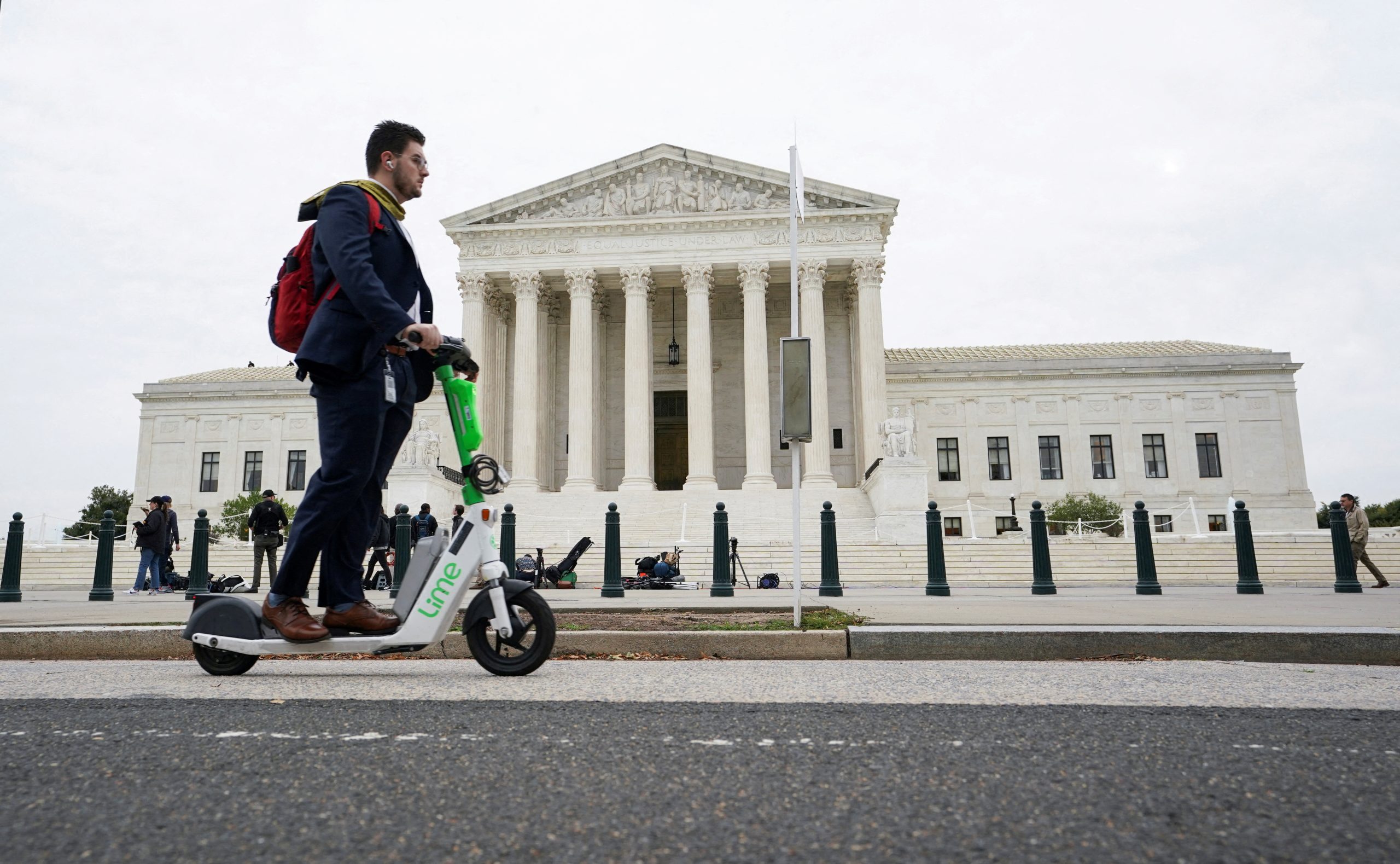
[elfsight_social_share_buttons id=”1″]
The U.S. Supreme Court on Thursday dealt another setback to organized labor by making it easier for employers to sue over strikes that cause property destruction in a ruling siding with a concrete business in Washington state that sued the union representing its truck drivers after a work stoppage.
The 8-1 decision overturned a lower court’s ruling that said the lawsuit filed by Glacier Northwest Inc, which sells and delivers ready-mix concrete, against a local affiliate of the International Brotherhood of Teamsters was preempted by a U.S. law called the National Labor Relations Act. Glacier Northwest is a unit of Japan-based Taiheiyo Cement Corp.
Glacier Northwest filed a lawsuit in Washington state court accusing the union of intentional property destruction during a 2017 strike.
A group of drivers went on strike while their mixing trucks were filled with concrete. Although the drivers kept their mixing drums rotating to delay the concrete from hardening and damaging the vehicles, the company was forced to discard the unused product at a financial loss.
The Washington state Supreme Court in 2021 ruled that the company’s claims were preempted by a statute called the National Labor Relations Act (NLRA), saying the company’s loss of concrete was incidental to a strike that could be considered arguably protected under federal labor law.
Conservative Justice Amy Coney Barrett, who wrote the ruling, said the union’s actions had not only destroyed the concrete but had also “posed a risk of foreseeable, aggravated, and imminent harm to Glacier’s trucks.”
“Because the union took affirmative steps to endanger Glacier’s property rather than reasonable precautions to mitigate that risk, the NLRA does not arguably protect its conduct,” Barrett wrote.
Liberal Justice Ketanji Brown Jackson, in a 27-page dissent, wrote that the ruling “is likely to cause considerable confusion among the lower courts” about how preemption under the National Labor Relations Act should apply in future cases and “risks erosion of the right to strike.”
The Supreme Court, with its 6-3 conservative majority, has leaned toward curbing the power of labor unions in rulings in recent years.
The Justices in 2021 struck down a California agricultural regulation aimed at helping unions organize workers. The court in 2018 ruled that non-members cannot be forced, as they are in certain states, to pay fees to unions representing public employees such as police and teachers that negotiate collective bargaining agreements with employers.
Noel Francisco, the lawyer who represented Glacier Northwest in the case decided on Thursday, said the ruling “vindicates the longstanding principle that federal law does not shield labor unions from tort liability when they intentionally destroy an employer’s property.”
Teamsters General President Sean O’Brien said the Supreme Court had “again voted in favor of corporations over working people.”
“The ability to strike has been on the books for nearly 100 years,” O’Brien said, “and it’s no coincidence that this ruling is coming at a time when workers across the country are fed up and exercising their rights more and more.”
The union, Teamsters Local Union No. 174, had claimed the strike not only was arguably protected under federal labor law but the resulting loss of concrete did not satisfy the high bar to override federal preemption. While the Supreme Court has found that labor unions can be sued in state court for violent or threatening conduct, the union had argued, this narrow exception should not be expanded to permit property damage claims brought under state law.
President Joe Biden’s administration had urged the justices to reverse the lower court’s decision, allowing Glacier Northwest’s lawsuit to proceed.
Copyright 2023 Thompson/Reuters
